Voyager I is space probe launched by NASA in 1977. Voyager's primary mission was to study Jupiter, Saturn, and Saturn's moon Titan. After making important discoveries here, such as active volcanoes on Jupiter's moon, the mission was extended. Now, Voyager is exploring where nothing from Earth has flown before. In August 2012, Voyager made the historic entry into interstellar space, the region between stars, filled with material ejected by the death of nearby stars millions of years ago. Voyager is the farthest man-made object. Although, Voyager spacecraft is not heading toward any particular star, but it will pass within 1.6 light-years of the star Gliese 445, in about 40000 years.
You can see in the image below location of Voyager 1, compared to other outer-Solar spacecrafts:
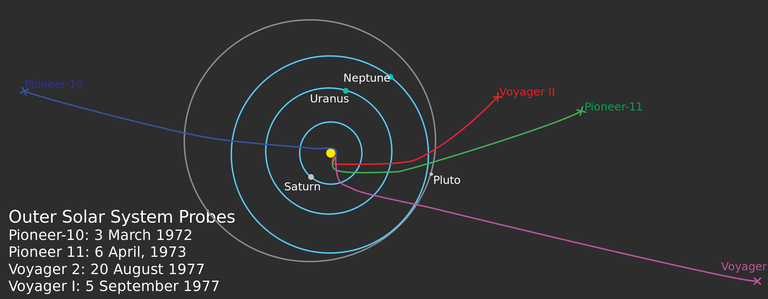
The Golden Record
Pioneers 10 and 11, which preceded Voyager, both carried small metal plaques identifying their time and place of origin. With this example before them, NASA placed a more ambitious message aboard Voyager 1 and 2, intended to communicate a story of our world to extraterrestrials. The Voyager message is carried by a phonograph record-a 12-inch gold-plated copper disk containing sounds and images selected to portray the diversity of life and culture on Earth.
The Cover
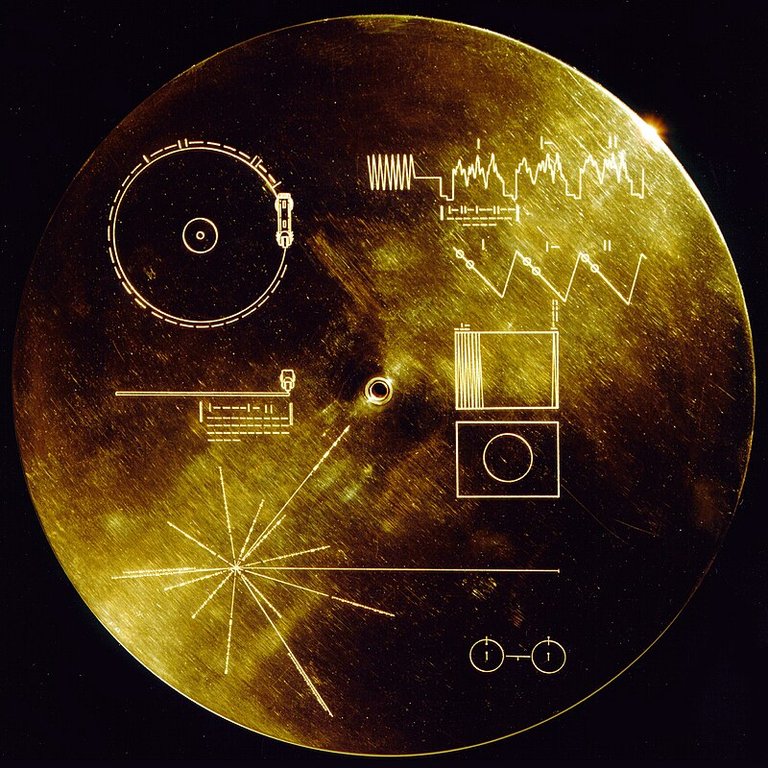
In the upper left-hand corner is an easily recognized drawing of the phonograph record and the stylus carried with it. The stylus is in the correct position to play the record from the beginning. Written around it in binary arithmetic is the correct time of one rotation of the record, 3.6 seconds, expressed in time units of 0,70 billionths of a second, the time period associated with a fundamental transition of the hydrogen atom.
The drawing in the lower left-hand corner of the cover is the pulsar map. It shows the location of the solar system with respect to 14 pulsars, whose precise periods are given. The drawing containing two circles in the lower right-hand corner is a drawing of the hydrogen atom in its two lowest states. Electroplated onto the record's cover is an ultra-pure source of uranium-238 with a radioactivity of about 0.00026 microcuries. The steady decay of the uranium source into its daughter isotopes makes it a kind of radioactive clock. Half of the uranium-238 will decay in 4.51 billion years. By examining this two-centimeter diameter area on the record plate and measuring the amount of daughter elements to the remaining uranium-238, an extraterrestrial recipient of the Voyager spacecraft could calculate the time elapsed since a spot of uranium was placed aboard the spacecraft.
The information in the upper right-hand part of the cover is designed to show how pictures are to be constructed from the recorded signals. The top drawing shows the typical signal that occurs at the start of a picture.
Contents of the Voyager Golden Record
''We cast this message into the cosmos ... Of the 200 billion stars in the Milky Way galaxy, some – perhaps many – may have inhabited planets and space faring civilizations. If one such civilization intercepts Voyager and can understand these recorded contents, here is our message: This is a present from a small distant world, a token of our sounds, our science, our images, our music, our thoughts, and our feelings. We are attempting to survive our time so we may live into yours. We hope some day, having solved the problems we face, to join a community of galactic civilizations. This record represents our hope and our determination and our goodwill in a vast and awesome universe.''
-President Jimmy Carter
Greetings
The Golden Record contains 55 spoken greetings in different language, including 5 ancient languages, such as Latin, Akkadian, Ancient Greek, Sumerian and Hittite.
Recordings were made at Cornell University, by people from the foreign-speaking departments.
I will share with you some of the most interesting and most touching greets.
Amoy language (Min dialect) greet : Friends of space, how are you all? Have you eaten yet? Come visit us if you have time.
Rajasthani language greet: Hello to everyone. We are happy here and you be happy there.
Persian language greet: Hello to the residents of far skies.
Indonesian language greet: Good night, ladies and gentlemen. Goodbye and see you next time.
Sounds and Music
Sound section includes sounds of tractor, train, wind, rain, crickets, frogs, elephant, chimpanzee, footsteps, heartbeat, laughter, mother kissing child and many more.
This section also includes inspirational message 'Per aspera ad astra' in Morse code. Translated from Latin, it means 'Through hardships to stars'.
90-minute music section includes traditional songs from all over the world, Senegal, Congo, Australia, New Guinea, Peru, Georgia, Bulgaria...
It also includes Bach's, Beethoven's, Mozart's, Chuck Berry's music.
Brainwaves
The Golden Record also carried an hour long recording of the brainwaves of Ann Druyan.
Images
Solar system location
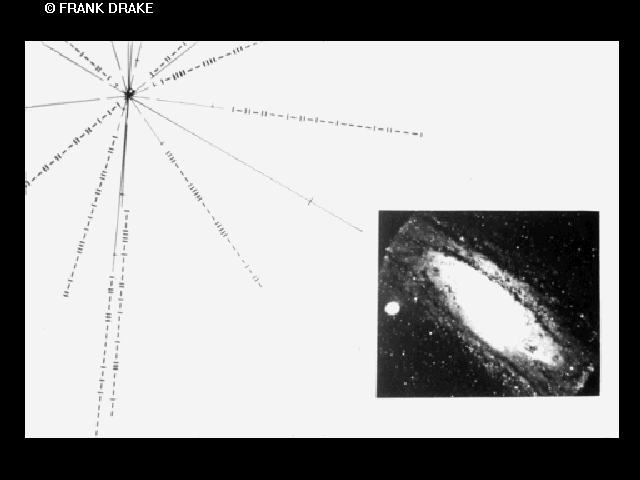
Mathematical definitions
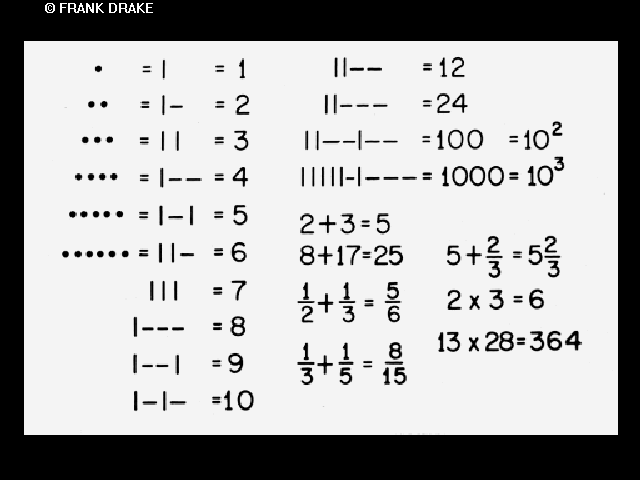
Physical unit definitions
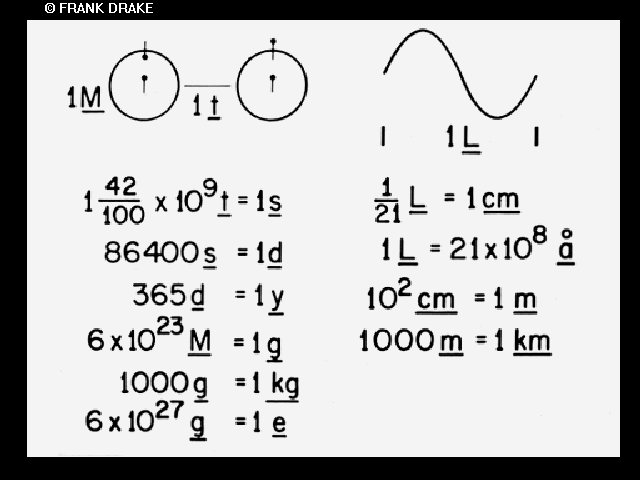
Solar system parameters
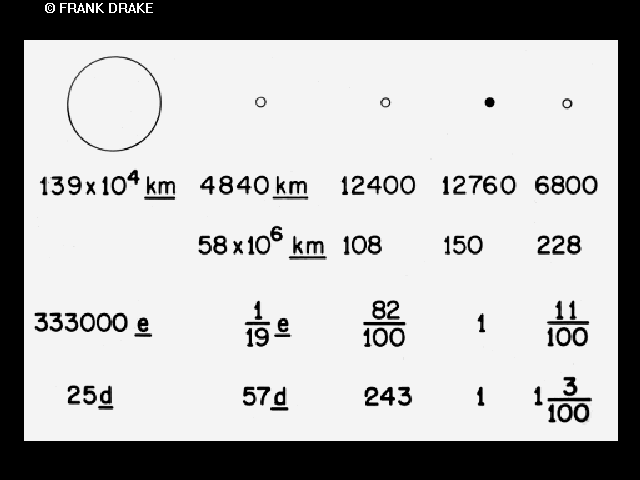
Jupiter

DNA structure
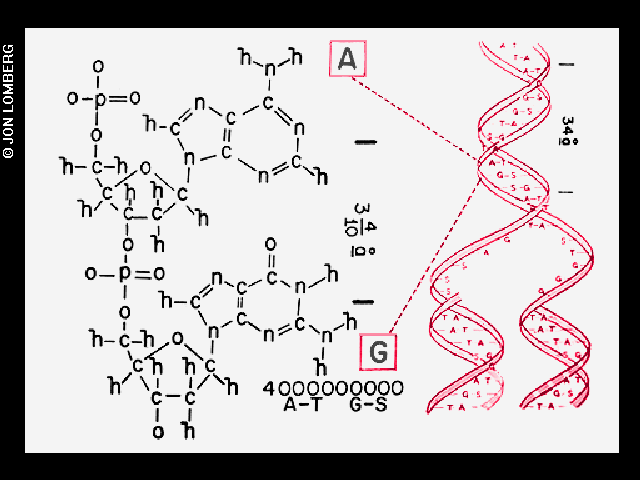
Fetus
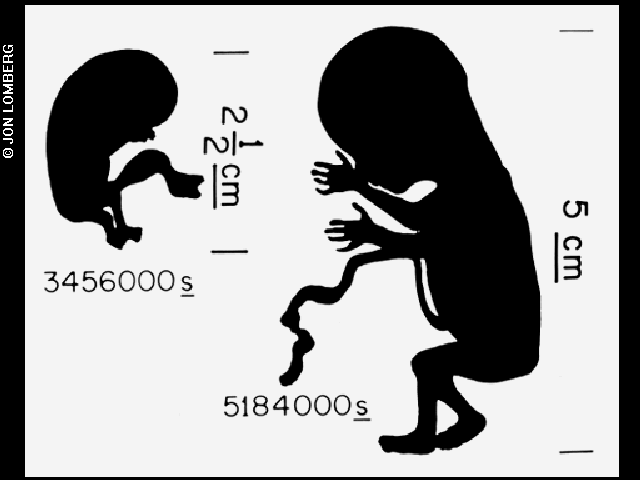
Sprinters
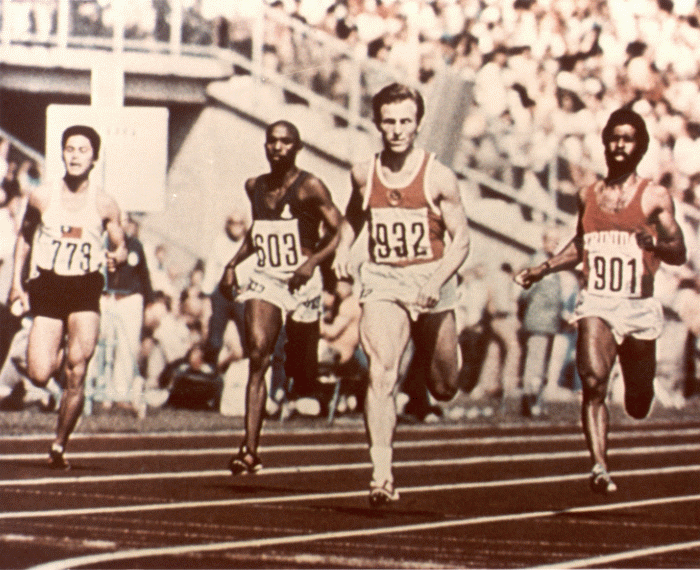
Guatemalan man
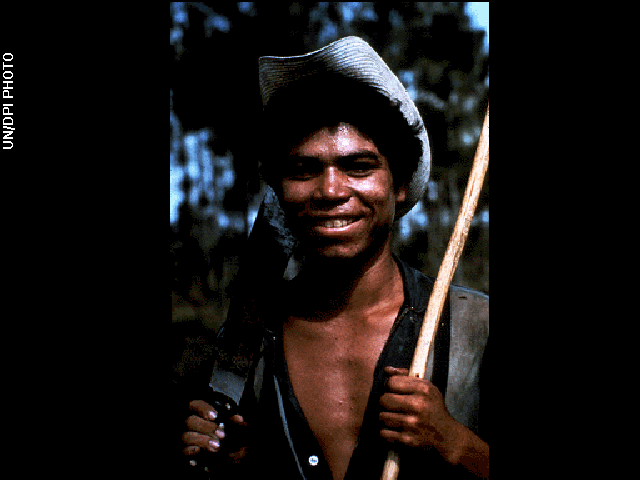
Demonstration of licking, eating and drinking

Woman with microscope
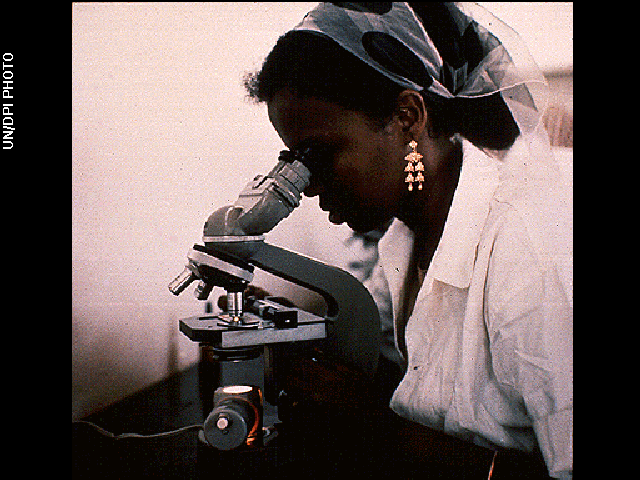
Nursing mother

And many, many more...
Source: www.jpl.nasa.gov/voyager/
Hi! I am a robot. I just upvoted you! I found similar content that readers might be interested in:
https://en.wikipedia.org/wiki/Contents_of_the_Voyager_Golden_Record